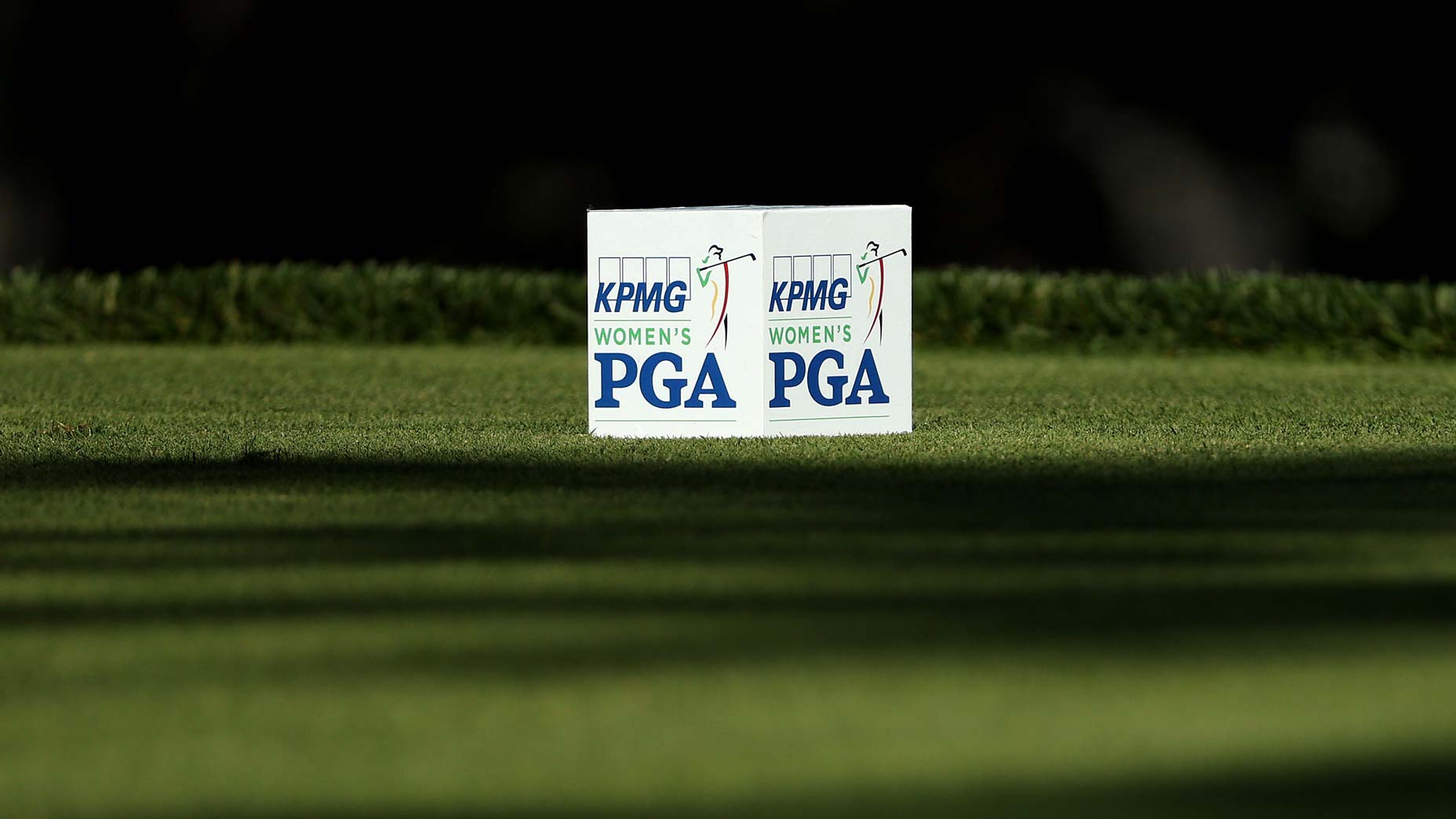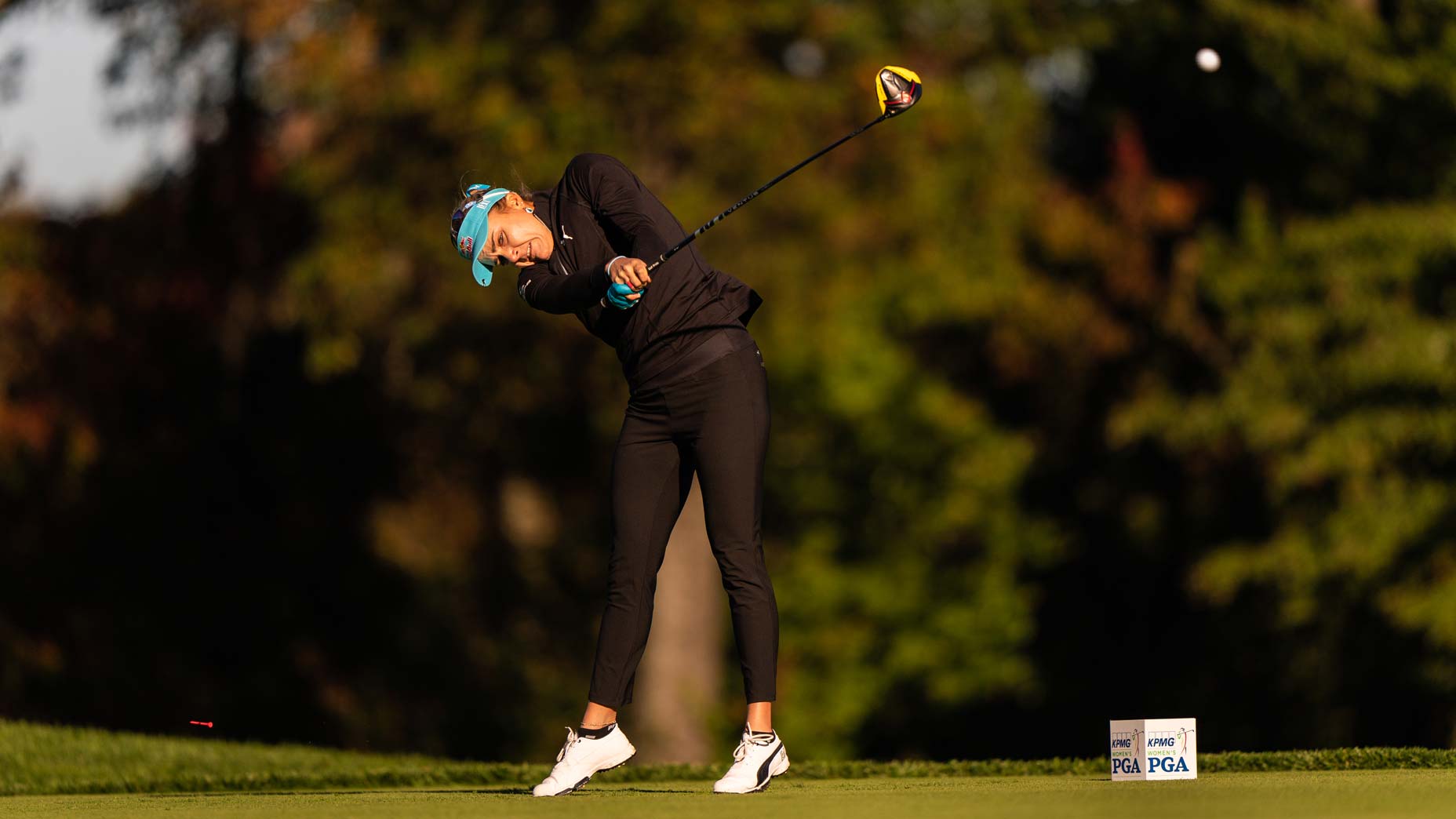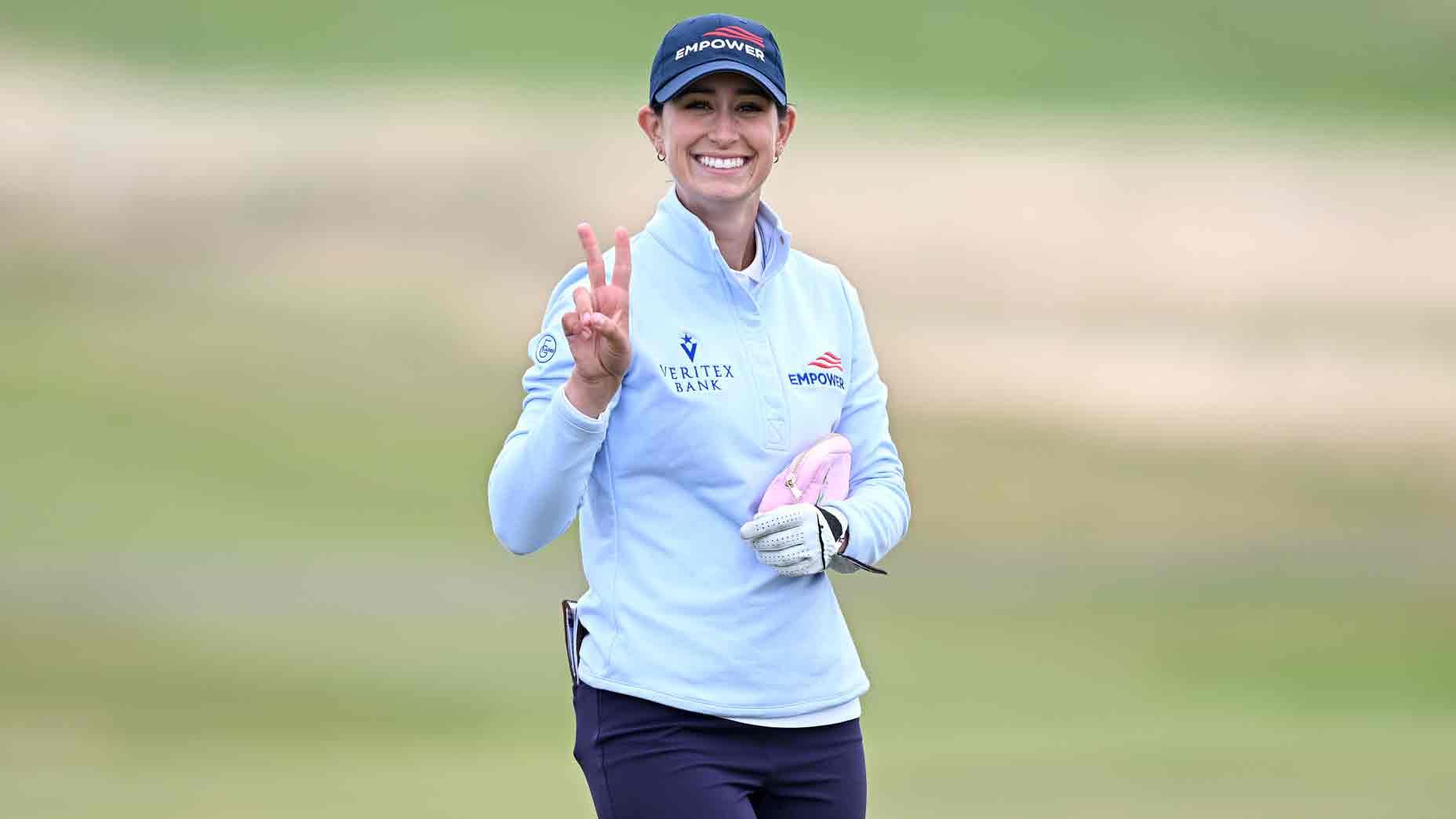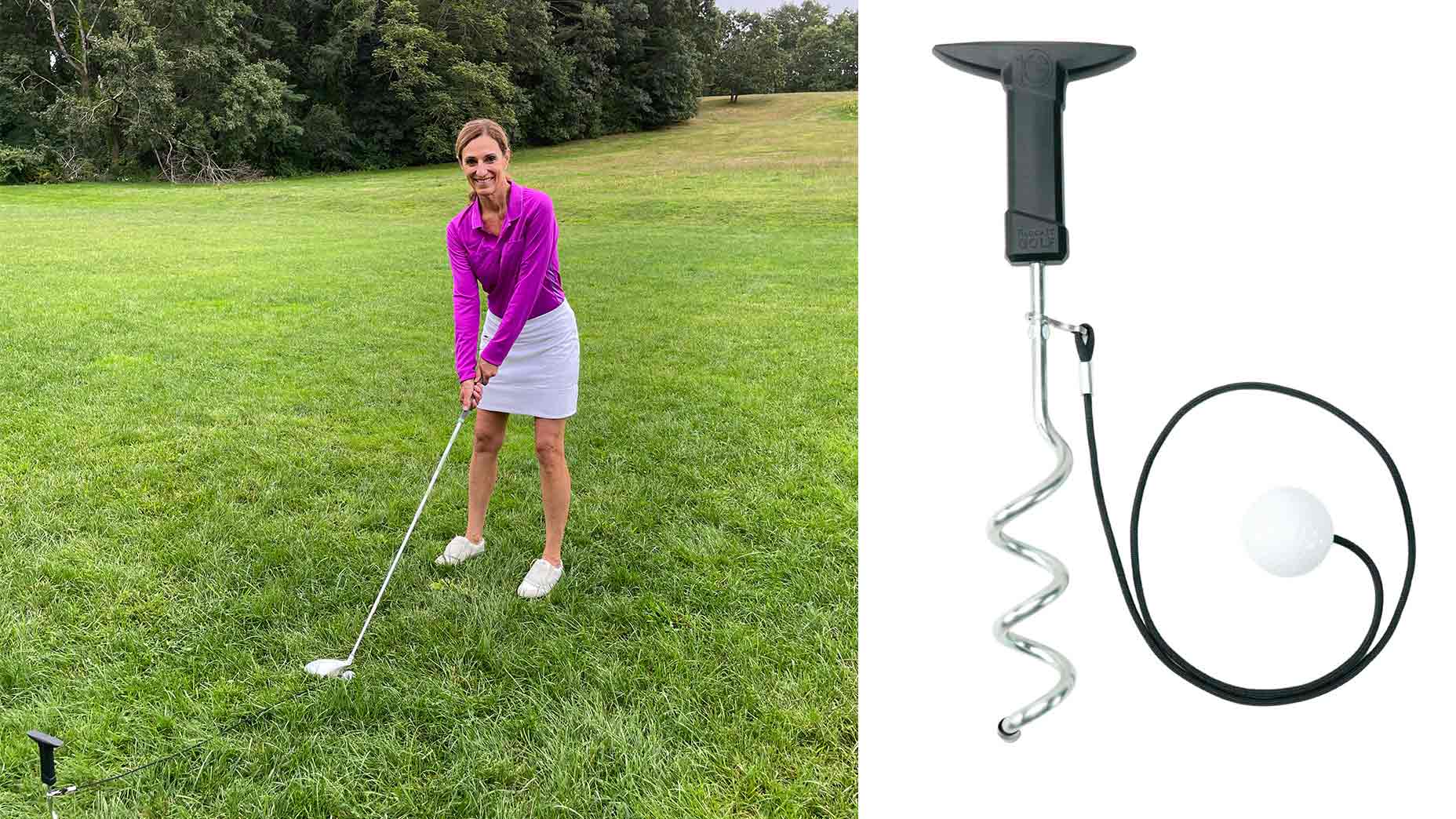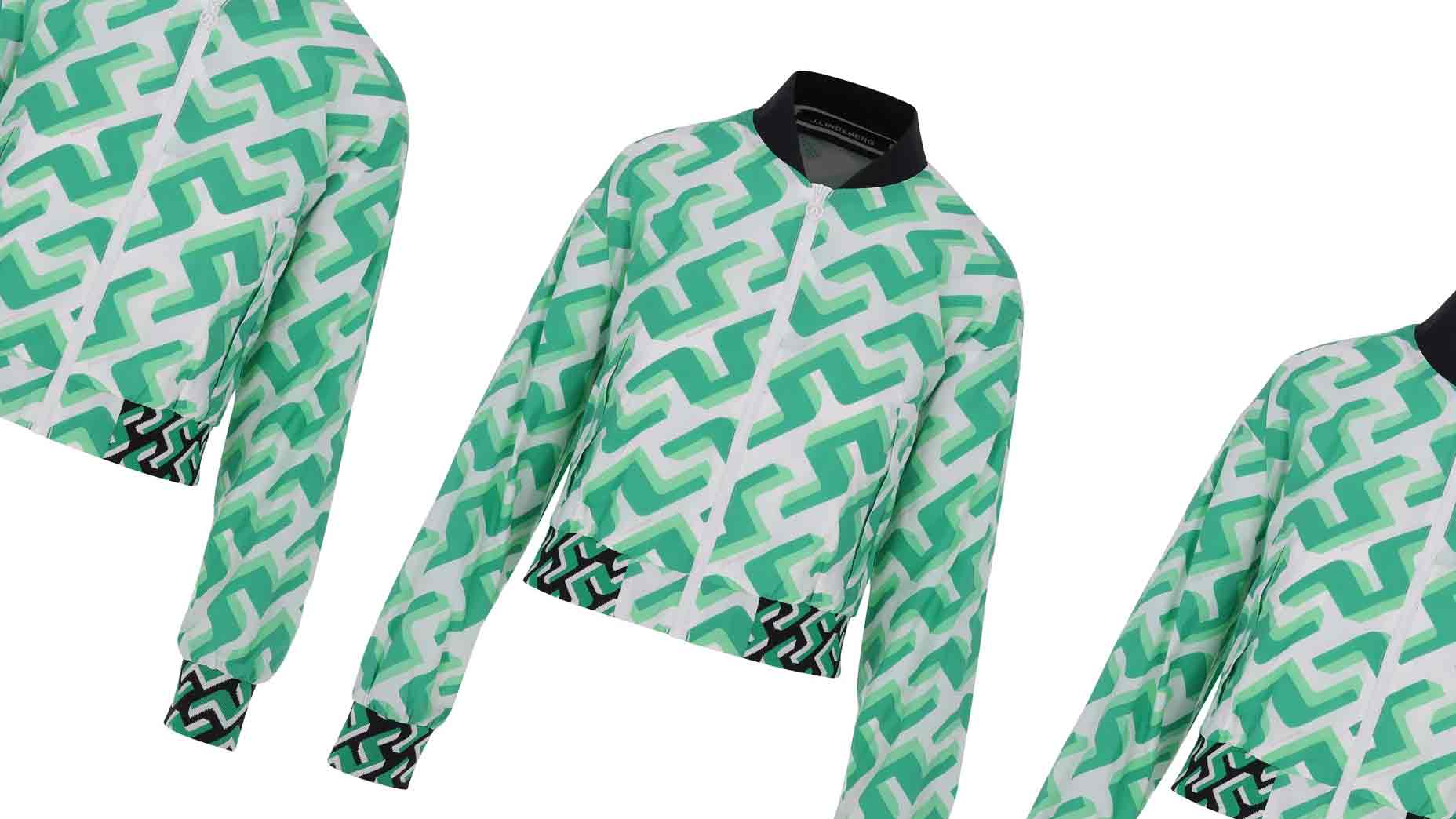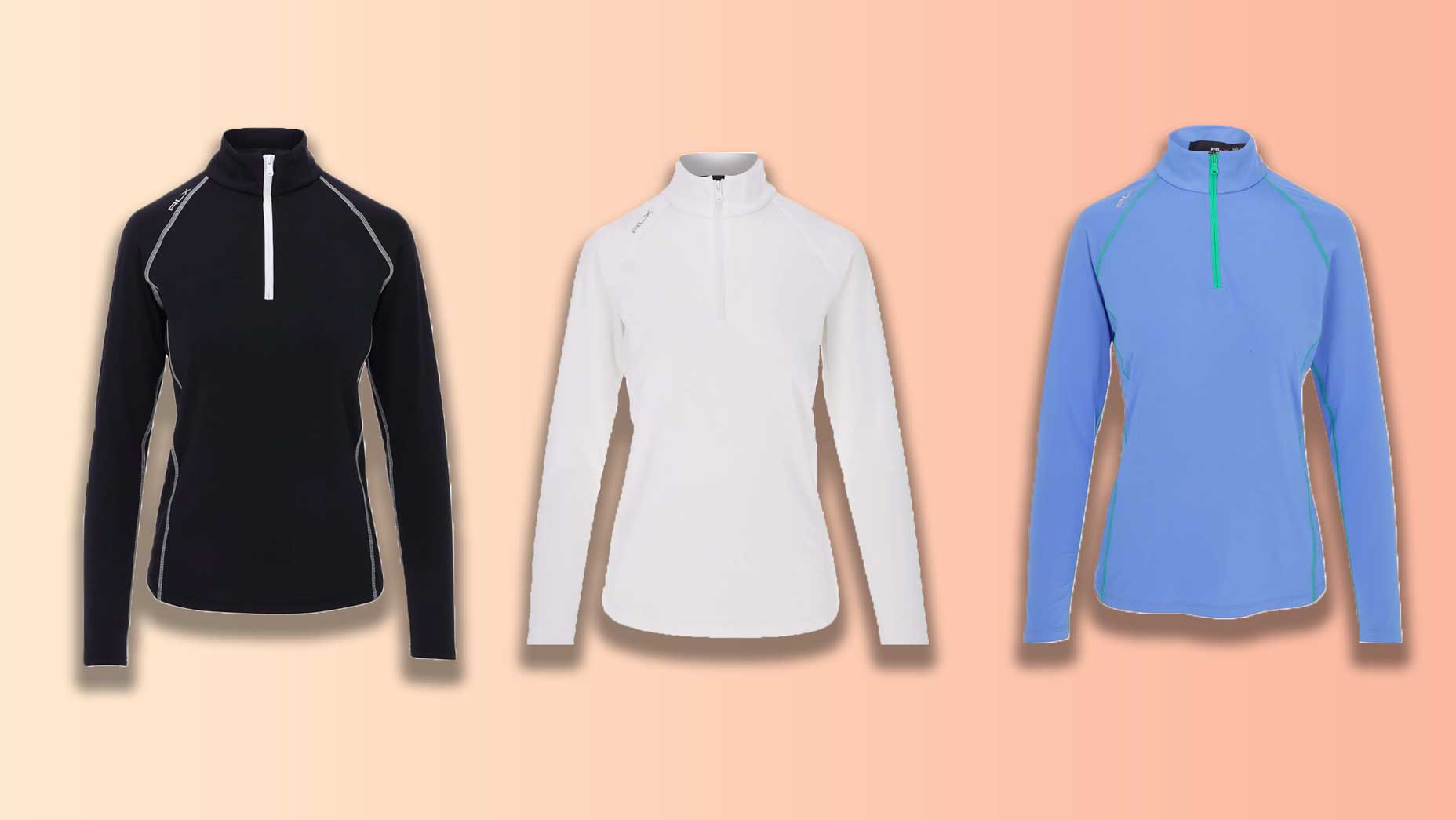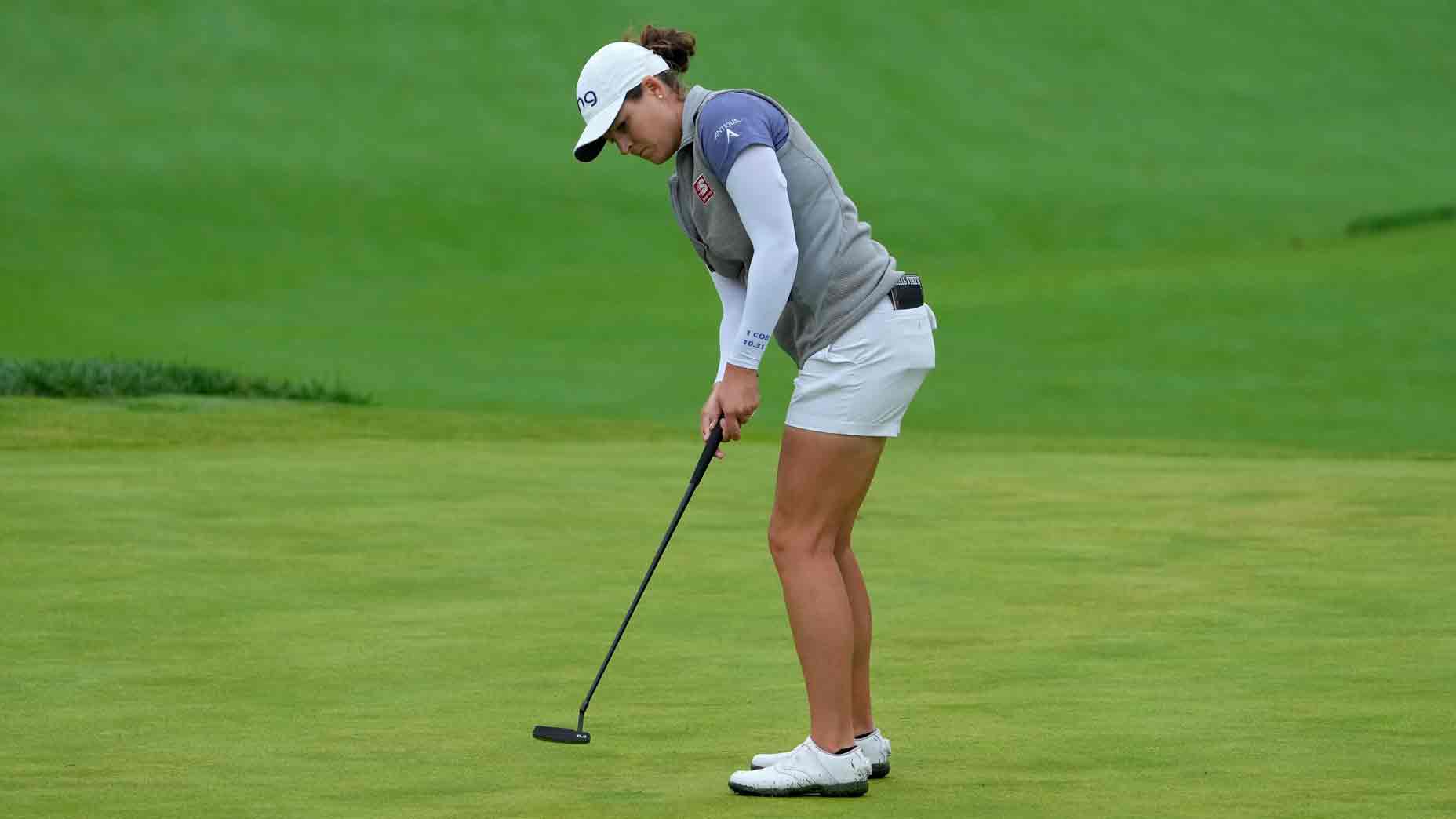NEWTOWN SQUARE, PA. — Everywhere you go in this crazy game these days, all anybody wants to talk about is Bryson. Bryson, Bryson, Bryson. Bryson’s first-round 62 in Vegas.
Well, here at the fabulous KPMG Women’s PGA Championship, at Aronimink — where Philadelphia Main Line country-club life is alive-and-well — Bryson’s body and Bryson’s drives and Bryson’s Augusta plans are barely after-thoughts, if that.
OK, the sample size is not large: interviews with three players, one a rookie, one a promising second-year player, one a legend. (Margin for error, GOLF.com-style: +/- 2 points!) But on we go.
“Women can’t do what Bryson did,” the golfing legend Stacy Lewis said on Thursday, after a first-round 75, 5 over par, on this beautiful, demanding Donald Ross course. She hit driver 13 times.
“Women’s bodies are different,” Lewis said. “If we tried to put on weight [in pursuit of length] like he did, it would all go to your butt and your stomach, and who knows if you’d hit it any further, and who knows where your game would be in five years.”
Stacy Lewis is 5-5, trim and fit, 35 years old, and she’s been at this thing called golf a long time. With her win at the Scottish Open this year, she looks like she’ll be at it for a long time to come, if that’s what she wants, and if the pace-of-play on today’s professional game doesn’t drive her to distraction.
There are exceptions, Lewis said, but generally speaking “for women to be long, they have to be tall.” Height and long arms give a tall player more time to create speed.
And so what? The rejuvenated Lydia Ko is No. 54 on the LPGA driving distance list, with a 256-yard average. She’s 5-5 in extra-long spikes. She shot a first-round 68 here in this grand women’s major, run by the PGA of America.
This has been said 999,999 times and here comes the millionth: women’s professional golf is, by far, a better example for nearly any of us — man, woman or child; 105-shooter or 68-shooter — who are looking for swing models. Lewis noted on Thursday that she plays in pro-ams every week with men who it the same distance that she does, yet she’s a plus-five and her gentlemen playing partners will typically break 90 only when Jupiter aligns with Mars.
KPMG Women’s PGA Championship to employ clever broadcast strategy on SundayBy: Zephyr Melton
As for Bryson, nobody but Bryson is doing Bryson. Rory McIlroy and Dustin Johnson aren’t doing Bryson. Bianca Pagdanganan, the LPGA’s longest driver this year, with an average driving distance of 288 yards, isn’t doing Bryson. (BTW: you can read Zephyr Melton’s live-from-Aronimink report on Pagdanganan here.) To that list we might add Lewis, whose average driving distance is 250 yards, and who is not, most decidedly, chasing Bryson. Neither is the rookie Haley Moore, who averages 254 yards. Even Linnea Strom of Sweden, with an average driving distance of 271 yards, has no plans to do a Bryson-style makeover anytime soon. Or ever. Strom, by the way, is seventh on the LPGA distance list, one spot ahead of Lexi Thompson (a six-footer) and one spot behind Jessica Korda (5-11).
On a cool, breezy day, with the wind blowing out of the north-northwest at 10 to 15 miles per hour and the fairways bone-dry, Strom hit driver 14 times and shot 68, two under par.
“I’m working out, trying to get stronger, and I am getting stronger,” Strom said Wednesday after a post-round session on the practice tee. The main goal of her gym work, she said, is not hitting driver longer. “I want to be as strong on Sunday afternoon as I am on Thursday morning,” she said. And here the 23-year-old golfer echoed Lewis. She’s in the gym so that her body will hold up “five years from now.” In other words, so that she can withstand the odd punishment that a life in golf makes a body endure: the range sessions, the shots from the rough, the packing and unpacking, the trips through a hundred airports. You don’t see too many entourages on the LPGA tour.
DeChambeau, she said, “got bigger to get stronger, but for me, by body type doesn’t change as I get stronger,” Strom said. “Length is always an advantage but on the courses we play you need more than length, you need finesse.” Strom grew up on the example of Annika Sorenstam, a fellow Swede and one of the greatest golfers ever. “She didn’t overpower courses. But she could play every shot.”
2020 KPMG Women’s PGA Championship tee times: Second round groupings for FridayBy: Kevin Cunningham
Haley Moore is a 21-year-old from Southern California who is playing in her first American major as a pro. She has a long, athletic swing and watching her brings to mind some LPGA legends from other eras, including JoAnne Carner and Laura Davies. Hale Irwin likes to say that golfers swing to their body types, and to their athleticism. Moore tossed a ball and caught it with nonchalant ease while doing an interview. She was asked what the response would be among her peers if an LPGA player did what DeChambeau has done this year, put on 30 or 40 pounds while gaining 30 or 40 yards.
“We’re not into judging bodies out here,” Moore said. Speaking broadly about body makeovers, she said, “It’s their body, they can do what they want with it.” But, Moore said, she could not imagine an LPGA player doing a complete body makeover in the name of chasing distance.
“This is a major, this course is long and on this course you need a lot of drivers,” she said. But week in and week out, she said, that was not the LPGA blueprint for course set-up.
Lewis was asked what she thought, when she first saw DeChambeau’s new body in late-spring and the length that went with it. “I was curious,” Lewis said. Just like everybody else. How did he do it? Will it work in the long-term? Where on his body is the weight?
“The guys on the PGA Tour hit it long by hitting it hard,” Lewis said. “We do it by hitting it solid.”
She then talked some about DeChambeau’s phenomenal play at the U.S. Open last month, where he won by a touchdown. “Everybody talked about how far he hit it,” Lewis said. “But he won it with this.” She raised her putter in the afternoon air.
Michael Bamberger welcomes your comments at Michael_Bamberger@GOLF.com.

